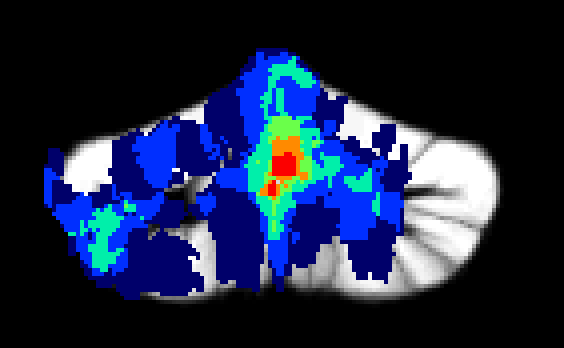
Experimentelle Neurologie
Upcoming Events
* Seminar series (Neurophysiologisches Seminar) *
Prof. Dr. Opher Donchin (Department of Biomedical Engineering, Ben Gurion University of the Negev, Beer Sheva, Israel) will give a lecture about: „A theory of learning and unlearning in motor adaptation.” Thursday, 16.5.2024, 5.15 – 6.45 pm. Hybrid event, please contact Dagmar Timmann for details.
* Journal-Club *
Julie Urrutia presents an update of her project on resting state data in a fear conditioning paradigm. Monday, 29.4.2024, 5.30 pm – 6.30 pm; Hybrid event, please contact Dagmar Timmann for details.
Tejas Nair, a PhD student in Melanie Mark’s lab at the RUB, will present his proposed project: Investigation of higher order fear conditioning and threat probability in Spinocerebellar Ataxia type 6 mice. Friday, 26.4.2024, 4.00 pm – 4.45 pm. via Zoom, please contact Dagmar Timmann for details.
* Key-note lecture Seminar series (Neurophysiologisches Seminar) *
Prof. Dr. Jörn Diedrichsen (Departments of Computer Science and Statistical and Actuarial Sciences, Western University, London, ON, Canada) will give a lecture about „Studying cortico-cerebellar loops in humans across functional domains.” Thursday, 28.09.2023, 10.15 – 11.45 am (!); Hybrid event, please contact Dagmar Timmann for details. Sponsored by SFB1280
* Key-note lecture CEN Network Meeting *
Prof. Dr. Javier F. Medina (Vivian L Smith Professor, Memory and Brain Research Center, Department of Neuroscience, Baylor College of Medicine, Houston, TX, USA) will give a lecture about „Cerebellar learning: Myths and revelations in the blink of an eye.” on Thursday, 27.7.2023 at 5 pm. Deichmann-Auditorium, Teaching & Learning Centre („Lehr- und Lernzentrum, LLZ“), Essen University Hospital, Virchowstr. 163 a, 45147 Essen. Hybrid event, please contact Dagmar Timmann for details.
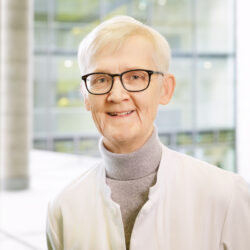
Univ.-Prof. Dr. med.
Dagmar Timmann-Braun
Professur für Experimentelle Neurologie
Marie Skłodowska-Curie Innovative Training Network
The consortium, called CEN (cerebellum & emotional networks), brings together researchers from across Europe and will address the contribution of the cerebellum in the control of emotions, and in particular fear and anxiety. Please see the CEN webpage for further information on our consortium.
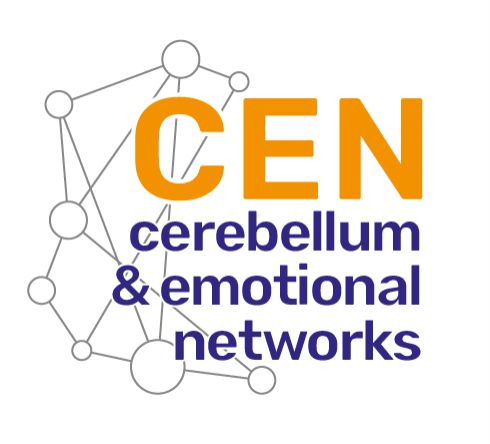
FOR 5429 MeMoSLAP
The new research unit “Modulation of brain networks for memory and learning by transcranial electrical brain stimulation: A systematic, lifespan approach (MeMoSLAP)” is funded by the German Research Foundation. Our group will investigate whether focalized tDCS based on the individual cerebellar anatomy reliably enhances cerebellar-dependent motor learning.
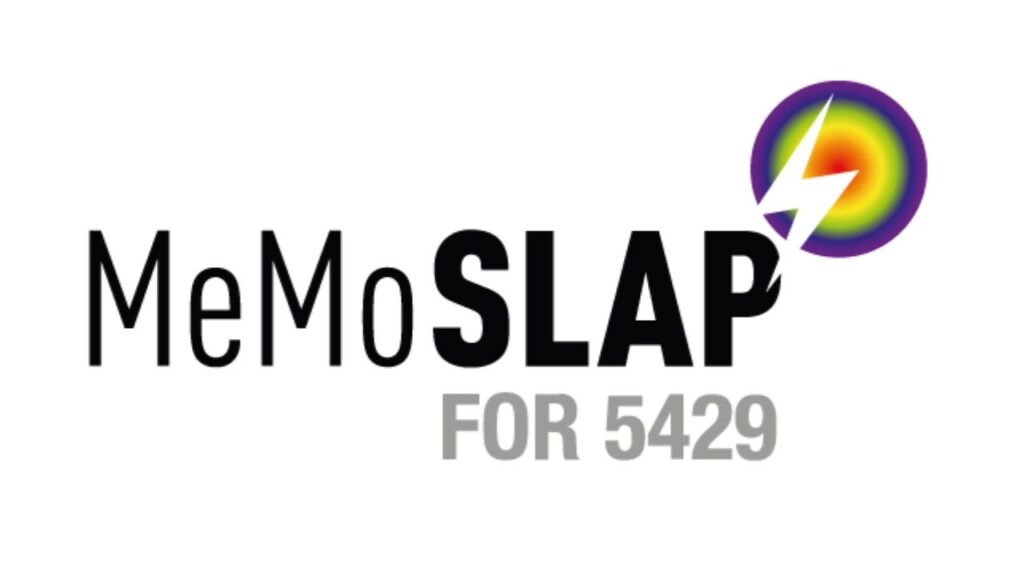
SFB1280 Extinction Learning
Second funding period has been granted by the German Research Foundation. Our group investigates the contribution of the cerebellum to extinction learning.

ELH-Art competition “ARTifact – Imaging MRI”
“Leaves of thoughts” submitted by Alice Doubliez, Enzo Nio and Greta Wippich won a first prize. Congratulations!
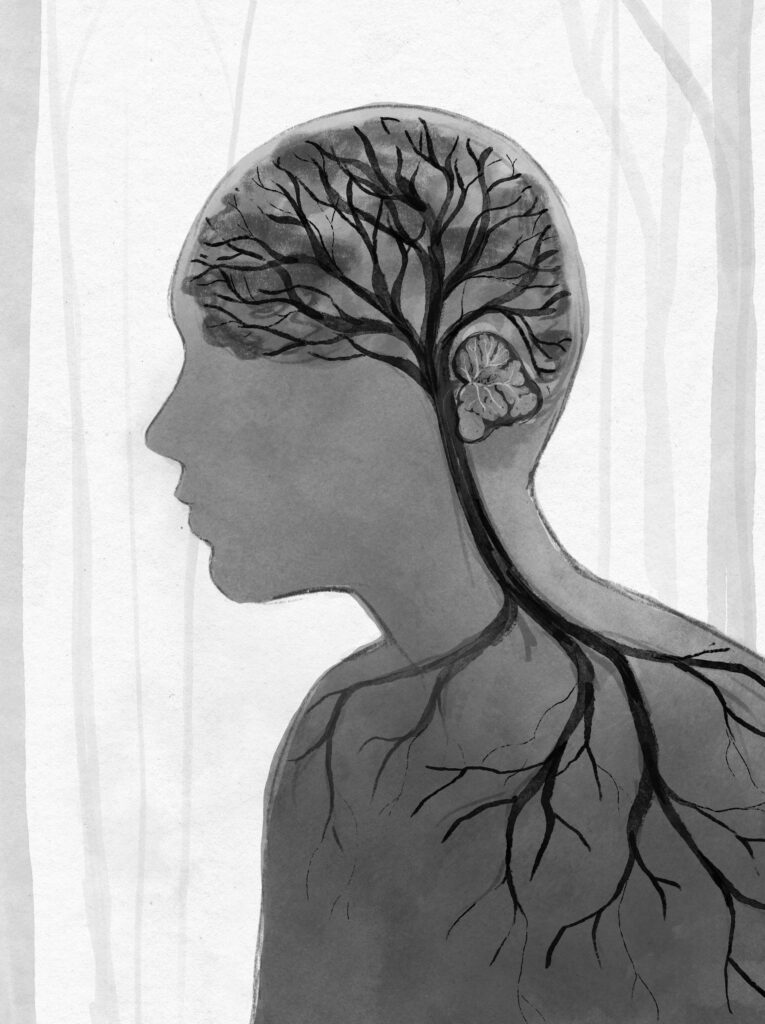
Welcome!
We welcome Qi Liu as a visiting scientist in our lab. She will stay for one year. She is an MD and PhD student from Beijing, China.
Congratulations!
Dagmar Timmann was awarded the Große Forschungspreis der DGKN 2024 (Grand Research Prize of the DGKN 2023).
Patrick Pais Pereira won a first posterprize at the 96. Annual Meeting of the German Neurology Society, 6.11.-9.11.23 in Berlin.
The project Involvement of the human cerebellum in reinforcement learning via its connection with the ventral tegmental area (VTA) will be funded by the DFG for three years. It is a joint project between Dagmar Timmann‘s group and the groups of Ulrike Bingel and Matthias Brand.
Enzo Nio won a poster prize at the 2023 Gordon Research Conference (GRC) on the Cerebellum.
Andreas Thieme gave a talk at the minisymposium “Cognitive and Affective Functions of the Cerebellum” at the 2023 SFN meeting in Washington, which will also be featured as part of a minireview in the annual meeting issue of the Journal of Neuroscience. He won a scholarship from the DAAD to sponsor his trip.
Andreas Thieme has been awarded a research grant from the German Heredoataxia Foundation (DHAG).
Dominik Jäschke‘s and Andreas Deistung‘s paper on “Age-Related Differences of Cerebellar Cortex and Nuclei: MRI findings in Healthy Controls and its Application to Spinocerebellar Ataxia (SCA6) Patients” has been accepted for publication in Neuroimage.
Manuel Rauscher has successfully defended his medical doctoral thesis on November 4th, 2022.
Dana M. Huvermann has been awarded a prize for best poster at the 95. Annual Meeting of the German Neurology Society, 1-5 November 2022.
Dagmar Timmann has been accepted as participant of the Raynor Cerebellum Project Big Ideas Summit in New Mexico in September 2022, an initiative of the of the UT Southwestern O’Donnell Brain Institute.
Jonathan S. Tsay, 4th year PhD student, University of California, Berkeley, USA won a travel grant of ThinkGlobal RUB to visit our lab this summer (2022).
Caroline Nettekoven, PhD, Western University, London, ON, Canada won a travel grant of ThinkGlobal RUB to visit our lab this summer (2022).
Nikolaj Petrenko, MD, PhD, won a UDE Fellowship for Reseachers from Ukraine, to visit our lab for six months in 2022. The fellowship has successfully been extended till March, 2023.
Dr. Giorgi Batsikadze‘s paper on “The cerebellum contributes to context-effects during fear extinction learning: a 7T fMRI study” has been accepted for publication in Neuroimage.
Dr. Andreas Thieme‘s paper on “The CCAS-Scale in hereditary ataxias: Helpful on the group level, particularly in SCA3, but limited in individual patients” has been accepted for publication in Journal of Neurology.
Dr. Rossitza Draganova‘s paper on “Motor training-related brain reorganization in patients with cerebellar degeneration” has been accepted for publication in Human Brain Mapping.
Dr. Andreas Deistung‘s paper on “Quantitative Susceptibility Mapping Reveals Alterations of Dentate Nuclei in Common Types of Degenerative Cerebellar Ataxias.” has been accepted for publication in Brain Communications.
Dr. Thomas Ernst has been awarded the Erwin L. Hahn Young Scientists Award on November 3rd, 2021.
Kristina Köster has been awarded a UDE-stipend in 2021 and 2022.
Thomas Ernst has successfully defended his doctoral thesis on September 1st, 2021.
Dominik Jäschke has successfully defended his medical doctoral thesis on August 19th, 2021.
Andreas Thieme has been selected for participation in Global Young Faculty VII, an initiative of Stiftung Mercator in cooperation with the University Alliance Ruhr.
Our group is one of the recruitment centers of the newly funded project “Spinocerebellar ataxias: Advanced imaging with ultra-high field MRI (SCAIFIELD)” coordinated by Prof. Tony Stöcker at the DZNE, carried out within the framework of the “EU Joint Program – Neurodegenerative Disease Research (JPND)”.
Liane John has successfully defended her medical doctoral thesis on June 30th, 2021.
Ariels Mamlins has successfully defended his medical doctoral thesis on May 28th, 2021.
Sarah Jansen has successfully defended her medical doctoral thesis on May 12th, 2021.
Jan Lipp has successfully defended his medical doctoral thesis on May 7th, 2021.
Andreas Thieme has been awarded a Top Young Science Best Paper Award by the Medical Faculty, University of Duisburg-Essen for his recent publication in Brain (Brain. 2021 Mar 3;144(2):e20. doi: 10.1093/brain/awaa417).
The Bernd Fink – Foundation will fund the project “Cognitive and affective abnormalities in patients with cerebellar disease” for two years starting in June 2021.
Rossitza Draganova‘s paper on “Neurostructural changes and declining sensorimotor function due to cerebellar cortical degeneration.” has been accepted for publication in the Journal of Neurophysiology.
Carlos Gomes‘s paper on “Resection of cerebellar tumours causes widespread and functionally relevant white matter impairments.“ has been accepted for publication in Human Brain Mapping.
Otilia Kimpel‘s and Marcus Gerwig‘s paper on “Long-term effects of cerebellar transcranial direct current stimulation (tDCS) on the acquisition and extinction of conditioned eyeblink responses” has been accepted for publication in Scientific Reports.
Katharina M. Steiner has been awarded a prize for best e-poster at the 93. Annual Meeting of the German Neurology Society, 4-7 November 2020.
Katharina M. Steiner successfully applied for a grant of the UMEA – Clinician Scientist Programm which is funded by the DFG. She will be funded for three years. The project will be done at the Department of Psychiatry, LVR-Klinikum Essen (Prof. Kölkebeck, Prof. Scherbaum) in collaboration with the Department of Neurology (Prof. Timmann).
Andreas Thieme‘s Letter to the Editor “Reference values for the Cerebellar Cognitive Affective Syndrome Scale: Age and education matter.” has been accepted by Brain. Furthermore, his paper “Validation of a German version of the Cerebellar Cognitive Affective/ Schmahmann Syndrome Scale: preliminary version and study protocol” has accepted for publication in Neurological Research and Practice.
Lana Inoue‘s and Giorgi Batsikdaze‘s paper on Interaction of fear conditioning with eyeblink conditioning supports the sensory gating hypothesis of the amygdala in men has been accepted for publication in the journal eNeuro.
Linda Beyer has successfully defended her medical doctoral thesis on June 3rd, 2020.
Seyed Ali Nicksirat won a Junior Clinician Scientist scholarship which allows him to work in the lab for three months full-time.
Katharina M. Steiner‘s paper on Extinction of Cognitive Associations Is Preserved in Patients With Cerebellar Disease has been accepted for publication in the journal Neurobiology of Learning and Memory.
Simba Oostdam has successfully defended his medical doctoral thesis on January 30th, 2020.
Johanna Reinold has successfully defended her medical doctoral thesis on December 20th, 2019.
Jan Lipp‘s and Rossitza Draganova‘s paper on Prefrontal but not cerebellar tDCS attenuates renewal of extinguished conditioned eyeblink responses has been accepted for publication in the journal Neurobiology of Learning and Memory.
Katharina M. Steiner as been awarded a prize for best poster at the 92. Annual Meeting of the German Neurology Society, 26-29 September 2019.
Jens Claassen‘s paper on Cerebellum is more concerned about visceral than somatic pain has been accepted for publication in the journal JNNP.
Thomas Ernst‘s paper on The cerebellum is involved in processing of predictions and prediction errors in a fear conditioning paradigm has been accepted for publication in the journal eLIFE.
Otilia Negruta has successfully defended her medical doctoral thesis on July 3rd, 2019.
Sarah Müller has successfully defended her medical doctoral thesis on May 31th, 2019.
Lana Inoue has been awarded the Masao Ito Award for Best Poster for the presentation of her poster „Can cerebellar-dependent motor responses modulate extinction of conditioned fear?“ at the 10. International Meeting of the Society for Research on the Cerebellum and Ataxias (SRCA), 16-17 May 2019, in Sheffield, UK
Anne Enders has successfully defended her medical doctoral thesis on April 30th. 30th, 2019.
Giorgi Batsikadze‘s paper on the Effects of cerebellar transcranial direct current stimulation on cerebellar-brain inhibition in humans: a systematic evaluation has been accepted for publication in the journal Brain Stimulation.
Michael Küper‘s paper on Cerebellar transcranial direct current stimulation modulates the fMRI signal in the cerebellar nuclei in a simple motor task has been accepted for publication in the journal Brain Stimulation.
Ariels Mamlin‘s paper on No effects of cerebellar transcranial direct current stimulation (tDCS) on force field and visuomotor reach adaptation in young and healthy subjects has been accepted for publication in the Journal of Neurophysiology.
Research group and research interests
Dagmar Timmann, MD, Associate Professor
Research Interests
The motor control Dagmar Timmann’s group is interested has a long-standing interest in the physiology and pathophysiology of the human cerebellum. A major interest is the involvement of the human cerebellum in different forms of motor learning. We are interested in the contribution of the cerebellum to acquisition and extinction processes. Questions addressed are whether the cerebellum is involved in particular forms of learning, which cerebellar areas are involved and what the mechanisms of cerebellar involvement are. Another interest is the role of the cerebellum in cognition.
A main focus is the study of patients with defined cerebellar pathology. Localization of focal cerebellar lesions and extent of atrophy in cerebellar degeneration are defined based on high-resolution structural MRI. Lesion data is correlated with findings in neurophysiological and psychological experiments. In addition, functional MRI studies are performed using 3T and 7T MR scanners. Transcranial direct current Non-invasive brain stimulation (tDCS) is used to modulate cerebellar function in healthy subjects and patients with cerebellar disease.

Univ.-Prof. Dr. med.
Dagmar Timmann-Braun
Professur für Experimentelle Neurologie
Curriculum Vitae
Academic education
1988 MD, University of Tübingen, Germany
1990 Dr. med., University of Tübingen
1996 Specialist in Neurology
1998 Habilitation with the venia legendi for Neurology, University of Essen, Germany
Academic positions
1989-1993 Intern/resident Department of Neurology, University Clinic Essen, Germany
1993-1994 Postdoc at the Arizona State University (Dr. G. Stelmach), Tempe, and Barrow Neurological Institute (Dr. J. Bloedel), Phoenix, Arizona, USA
1994-1995 Postdoc at the R.S. Dow Neurological Sciences Institute (Dr. F. Horak), Portland, Oregon, USA
1995-1997 Resident Department of Neurology, University Clinic Essen
1998-1999 Postdoc at the University of Western Ontario, Department of Physiology (Dr. J. Hore), London, Ontario, Canada
since 2000 Associate Professor (C3) of Experimental Neurology, Department of Neurology, University Clinic Essen
2006 Visiting Scientist at the University of Western Ontario, Department of Physiology (Dr. J. Hore), London, Ontario, Canada
2011 and 2017 Visiting Scientist at the Human Sensorimotor Control Laboratory (Dr. J. Konczak), University of Minnesota, USA
Further activities
since 1997 Medical advisory board, German Heredo-Ataxia Society
since 2000 Head of the Ataxia Clinic, Department of Neurology, University Clinic Essen
2006-2017 Deputy chairman of the Human research ethics committee, University Clinic Essen
2007-2012 Treasurer, Society for Research on Cerebellum
since 2016 Associated Principle Investigator Erwin L. Hahn Institute of Magnetic Resonance Imaging
since 2017 Co-speaker SFB 1280 (Extinction learning; speaker O. Güntürkün, RUB) since 2021 Deputy Network Coordinator ITN “Cerebellum and Emotional Networks” (CEN)
Members of the Group (Phone, Email)
- Giorgi Batsikadze, Postdoc
+49 201 723 3815
giorgi.batsikadze@uk-essen.de - Beate Brol, technician
+49 201 723 2594
beate.brol@uni-duisburg-essen.de - Friedrich Erdlenbruch, MD
+49 201 723 3815
friedich.erdlenbruch@uk-essen.de - Thomas Ernst, Lab manager
+49 201 723 3815
thomas.ernst@uk-essen.de - Dana M. Huvermann, PhD student
+49 201 723 3815
danamaria.huvermann@uk-essen.de / dana.huvermann@hhu.de - Frederik Schlitt, Postdoc
+49 201 723 3815
frederik.schlitt@uk-essen.de - Nikolai Petrenko, Postdoc
+49 201 723 3815
nikolajspetrenko@gmail.com - Dagmar Timmann, MD
+49 201 723 2180/2594
dagmar.timmann-braun@uk-essen.de - Andreas Thieme, MD (UMEA clinician scientist)
+49 201 723 2594
andreas.thieme@uk-essen.de - Enzo Nio, PhD student
+49 201 723 3769
enzo.nio@uk-essen.de - Carlos Gomes, PhD
+49 201 723 2594
carlosalexandre.assuncaodiasgomes@uk-essen.de / carlos.assuncaodias@ruhr-uni-bochum.de - Annegret Vanlent-Theissen, secretary
+49 201 723 2180
annegret.vanlent-theissen@uk-essen.de - Simone Lohbeck, technician (part time)
+49 201 723 2594
simone.lohbeck@uk-essen.de - Alice Doubliez, PhD student
+49 201 723 3816
alice.doubliez@uk-essen.de
Student help: Lena Coenen, Laurenz Engel, Daria Kireylioglu, Naomi Johanna Müller, Lara Müntefering, Patrick Pais Pereira, Milan Rieger, Greta Wippich
Medical doctoral students: Lana Inoue (ELAN scholarship), Lara Jablonski, Daria Kireylioglu, Michael Klein, Kristina Köster, Naomi Johanna Müller, Lara Müntefering, Seyed Ali Nicksirat, Sarah Schellen, Paula Steinhoff (ELAN scholarship), Julie Urrutia, Raquel van der Veen
Master students: Lena Coenen
External group members: Bilge Albayrak, MD (UMEA clinician scientist); Dae-In Chang, MD; Marcus Gerwig, MD; Michael Küper, MD; Seyed Ali Nicksirat, MD; Katharina Marie Steiner, MD (UMEA clinician scientist)
Phone numbers
+49 201 723 3815/ 2594 (Lab, ground floor)
+49 201 723 2865 (Lab, basement)
+49 201 723 3769 (Lab, ground floor)
+49 201 723 3816 (Lab, basement) +49 201 723 5969 (Lab, Fax)
Funding
The group is funded by the German Research Foundation (Deutsche Forschungsgemeinschaft, DFG), EU (Horizon 2020), Mercator Research Center Ruhr, Else-Kröner Promotionskolleg ELAN, the University Medicine Essen Clinician Scientist Academy UMEA, the German Heredoataxia Society and the Bernd Fink – Foundation.
Important publications
Batsikadze G, Pakusch J, Klein M, Ernst TM, Thieme A, Nicksirat SA, Steiner KM, Nio E, Genc E, Maderwald S, Deuschl C, Merz CJ, Quick HH, Mark MD, Timmann D. Mild Deficits in Fear Learning: Evidence from Humans and Mice with Cerebellar Cortical Degeneration. eNeuro. 2024 Feb 26;11(2):ENEURO.0365-23.2023.
Deistung A, Jäschke D, Draganova R, Pfaffenrot V, Hulst T, Steiner KM, Thieme A, Giordano IA, Klockgether T, Tunc S, Münchau A, Minnerop M, Göricke SL, Reichenbach JR, Timmann D. (2022) Quantitative susceptibility mapping reveals alterations of dentate nuclei in common types of degenerative cerebellar ataxias. Brain Commun. 4(1):fcab306.
Batsikadze G, Diekmann N, Ernst TM, Klein M, Maderwald S, Deuschl C, Merz CJ, Cheng S, Quick HH, Timmann D (2022) The cerebellum contributes to context-effects during fear extinction learning: A 7T fMRI study. Neuroimage. 253:119080.
Gomes CA, Steiner KM, Ludolph N, Spisak T, Ernst TM, Mueller O, Göricke SL, Labrenz F, Ilg W, Axmacher N, Timmann D. (2021) Resection of cerebellar tumours causes widespread and functionally relevant white matter impairments. Hum Brain Mapp. 2021 Apr 15;42(6):1641-1656.
Inoue L, Ernst TM, Ferber II, Merz CJ, Timmann D, Batsikadze G. (2020) Interaction of fear conditioning with eyeblink conditioning supports the sensory gating hypothesis of the amygdala in men. eNeuro. 2020;ENEURO.0128-20.2020.
Ilg W, Seemann J, Giese M, Traschütz A, Schöls L, Timmann D, Synofzik M. (2020) Real-life gait assessment in degenerative cerebellar ataxia: Toward ecologically valid biomarkers. Neurology. 95(9):e1199-e1210.
Ernst TM, Brol AE, Gratz M, Ritter C, Bingel U, Schlamann M, Maderwald S, Quick HH, Merz CJ, Timmann D. (2019) The cerebellum is involved in processing of predictions and prediction errors in a fear conditioning paradigm. Elife. 8:e46831.
Batsikadze G, Rezaee Z, Chang DI, Gerwig M, Herlitze S, Dutta A, Nitsche MA, Timmann D. (2019) Effects of cerebellar transcranial direct current stimulation on cerebellar-brain inhibition in humans: A systematic evaluation. Brain Stimul. 12:1177-1186.
Donchin O, Timmann D. (2019) How to help cerebellar patients make the most of their remaining learning capacities. Brain. 142:492-495.
Mamlins A, Hulst T, Donchin O, Timmann D, Claassen J. (2019) No effects of cerebellar transcranial direct current stimulation on force field and visuomotor reach adaptation in young and healthy subjects. J Neurophysiol. 121:2112-2125.
Tran L, Huening BM, Kaiser O, Schweiger B, Sirin S, Quick HH, Felderhoff-Mueser U, Timmann D. (2017) Cerebellar-dependent associative learning is impaired in very preterm born children and young adults. Sci Rep. 7:18028.
Weissbach A, Werner E, Bally JF, Tunc S, Löns S, Timmann D, Zeuner KE, Tadic V, Brüggemann N, Lang A, Klein C, Münchau A, Bäumer T. (2017) Alcohol improves cerebellar learning deficit in myoclonus-dystonia: A clinical and electrophysiological investigation. Ann Neurol. 82:543-553.
Hulst T, John L, Küper M, van der Geest JN, Göricke SL, Donchin O, Timmann D. (2017) Cerebellar patients do not benefit from cerebellar or M1 transcranial direct current stimulation during force-field reaching adaptation. J Neurophysiol. 118:732-48
Stefanescu MR, Dohnalek M, Maderwald S, Thürling M, Minnerop M, Beck A, Schlamann M, Diedrichsen J, Ladd ME, Timmann D. (2015) Structural and functional magnetic resonance imaging abnormalities of cerebellar cortex and nuclei in spinocerebellar ataxia type 3, spinocerebellar ataxia type 6, and Friedreich’s ataxia. Brain 138:1182-97
Thürling M, Kahl F, Maderwald S, Stefanescu RM, Schlamann M, Boele H-J, De Zeeuw CI, Diedrichsen J, Ladd ME, Koekkoek SKE, Timmann D. (2015) Cerebellar cortex and cerebellar nuclei are concomitantly activated during eyeblink conditioning: a 7T fMRI study in humans. J Neurosci. 35:1228-39
Christensen A, Giese M, Sultan F, Müller O, Göricke S, Ilg W, Timmann D. (2014) An intact action-perception coupling depends on the integrity of the cerebellum. J Neurosci. 34:6707-6716
Thieme A, Thürling M, Galuba J, Burciu RG, Göricke S, Beck A, Aurich V, Wondzinski E, Siebler M, Gerwig M, Bracha V, Timmann D. (2013) Storage of a naturally acquired conditioned response is impaired in patients with cerebellar degeneration. Brain 136:2063-2076
Burciu RG, Fritsche N, Granert O, Schmitz L, Spönemann N, Konczak J, Theysohn N, Gerwig M, van Eimeren T, Timmann D. (2013) Brain changes associated with postural training in patients with cerebellar degeneration: a voxel-based morphometry study. J Neurosci. 33:4594-4604
Taig E, Küper M, Theysohn N, Timmann D, Donchin. (2012) Deficient use of visual information in estimating hand position in cerebellar patients. J Neurosci. 32:16274-16284
Donchin O, Rabe K, Diedrichsen J, Lally N, Schoch B, Gizewski ER, Timmann D. (2012) Cerebellar regions involved in adaptation to force field and visuomotor perturbation. J Neurophysiol. 107:134-147
Diedrichsen J, Maderwald S, Küper M, Thürling M, Rabe K, Gizewski ER, Ladd ME, Timmann D. (2011) Imaging the deep cerebellar nuclei: A probabilistic atlas and normalization procedure. Neuroimage 54: 1786-1794
